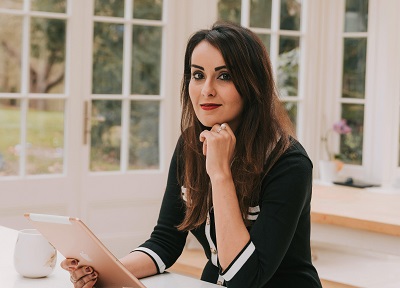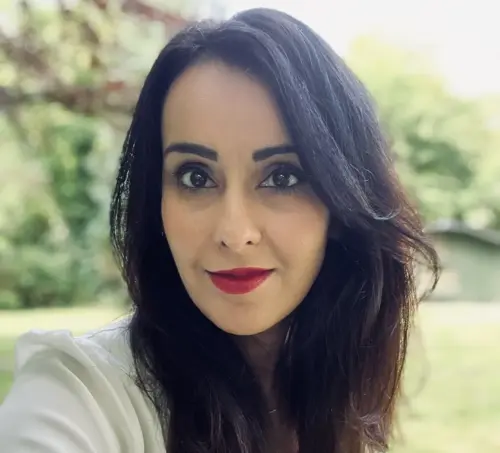
Building a powerful advocacy voice
How a BMJ Opinion piece sparked a movement beyond clinical practice
A powerful blend of professional expertise, personal experience, and a growing public platform has marked Dr Seema Haider’s journey into advocacy.
As a general practitioner with a deep understanding of the complexities of domestic abuse, her recent involvement in a vital documentary project reflects how a single act of sharing her story in The BMJ has expanded her impact well beyond clinical practice.
Dr Haider’s journey began with a BMJ Opinion piece that resonated widely within the medical community and beyond. The response to the publication of Courage is contagious: we need to talk about the domestic abuse experienced by female doctors in the NHS, was immediate; she was approached by True Vision, a production company known for impactful human rights documentaries.

“The power of this article is rooted in the lived experience. It has been a privilege to work with True Vision to open up this dialogue beyond the walls of the NHS. It has helped me reclaim my voice and been healing.”
Dr Seema Haider
General practitioner partner & trainer, Haiderian Medical Centre, UK
Dr Haider’s opinion piece offered a deeply personal account of her experiences with coercive control and the challenges faced by healthcare professionals who are themselves survivors of domestic abuse. It highlighted the critical need for greater understanding and support within healthcare settings, where the signs of abuse can be easily missed, even among clinicians.
Reflecting on this journey, Dr Haider recognised the power of The BMJ to connect clinicians’ voices with broader societal conversations. Just days after her piece was published, True Vision noticed it, drawn to the strength of her story and the credibility of the platform that shared it.
Dr Haider notes a profound shift in her career trajectory since the article’s publication. It opened doors to new forms of advocacy and broadened her perspective on how a clinician’s voice can make a difference. She has since collaborated with the University of Bristol in the UK and Practitioner Health magazine on research into supporting doctors who experience abuse. She has become a sought-after speaker, helping to inform and train healthcare professionals and shape the future of medical education.
Dr Haider now regularly teaches GP training schemes and speaks at national conferences like the British Association of Physicians of Indian Origin (BAPIO) Women’s Conference. She has also provided training for Integrated Care Board (ICB) safeguarding teams, responsible for protecting the health and wellbeing of vulnerable individuals.
This experience highlights how The BMJ can amplify important, often underrepresented voices, extending their reach to new audiences and creating unexpected paths for change. It also underscores the journal’s role as a bridge between medical evidence and broader societal impact, helping to inform clinical practice and public discourse.





